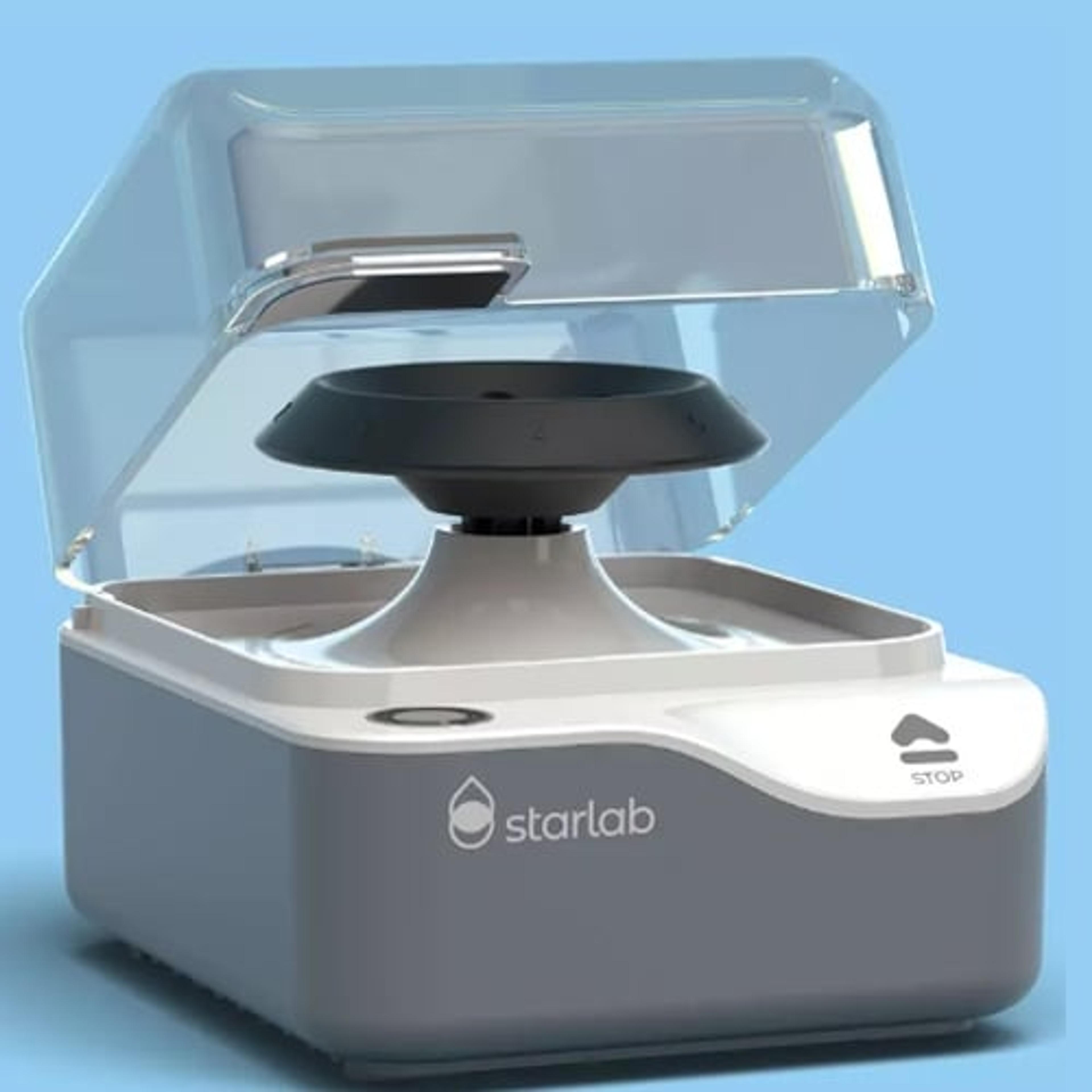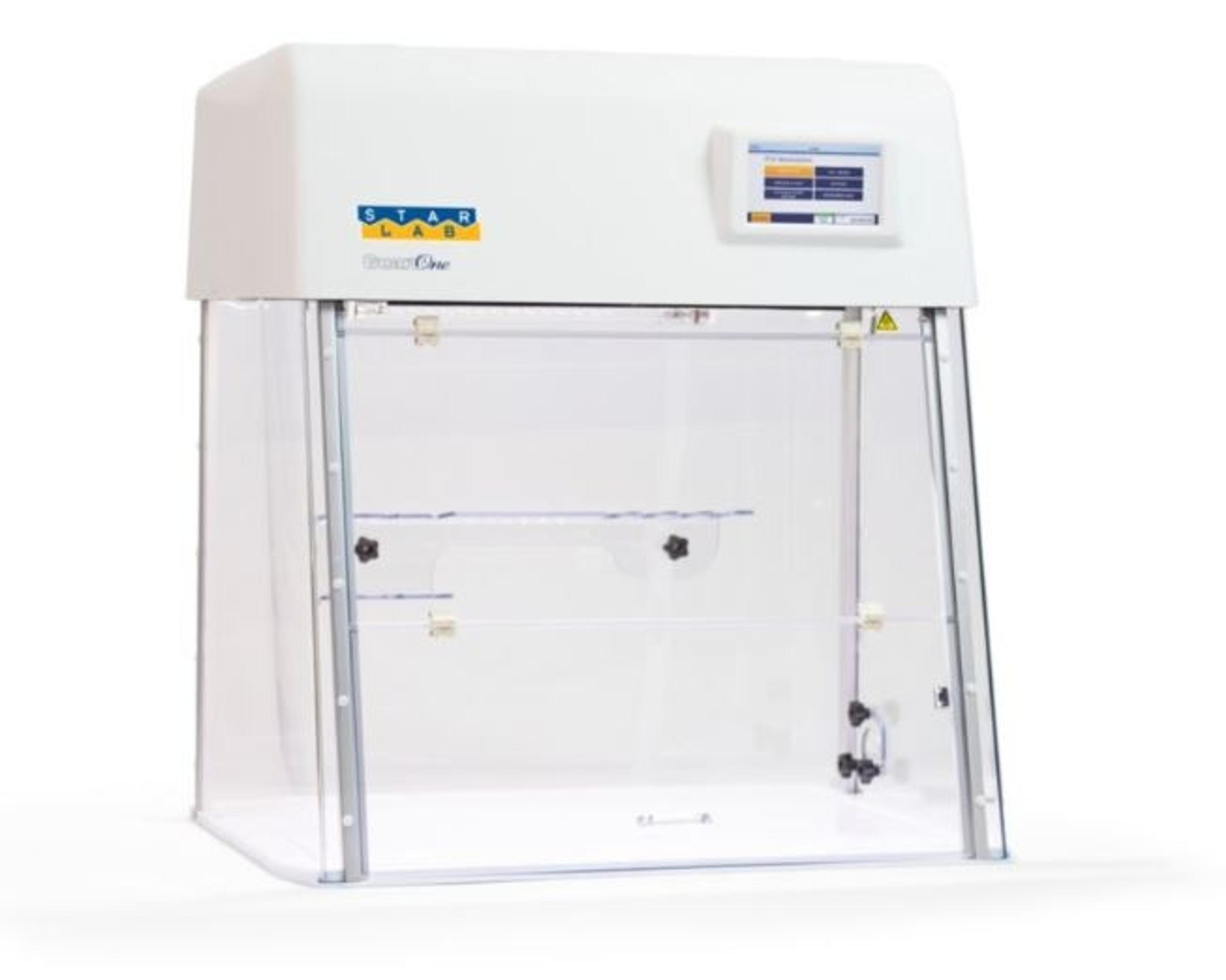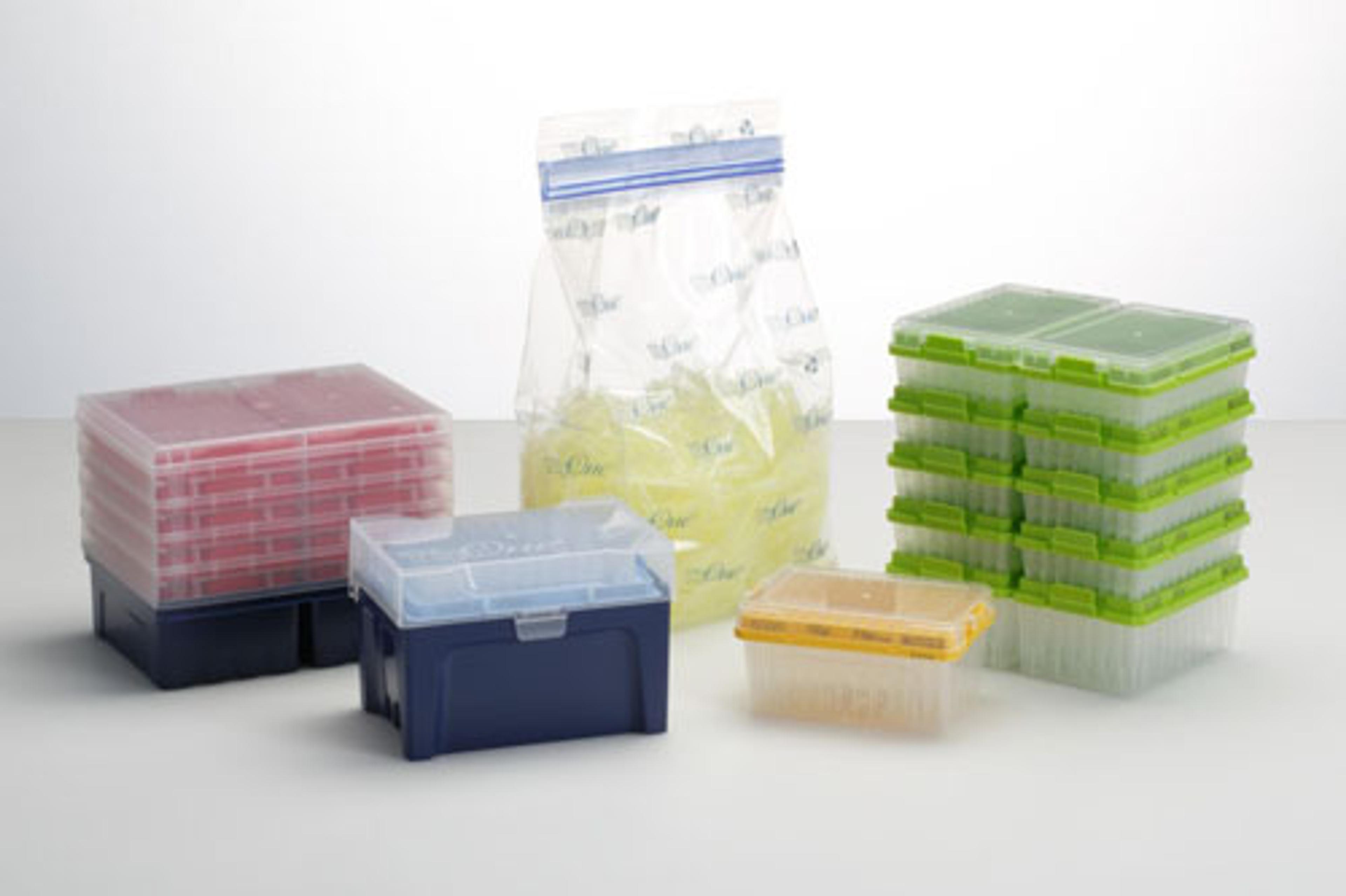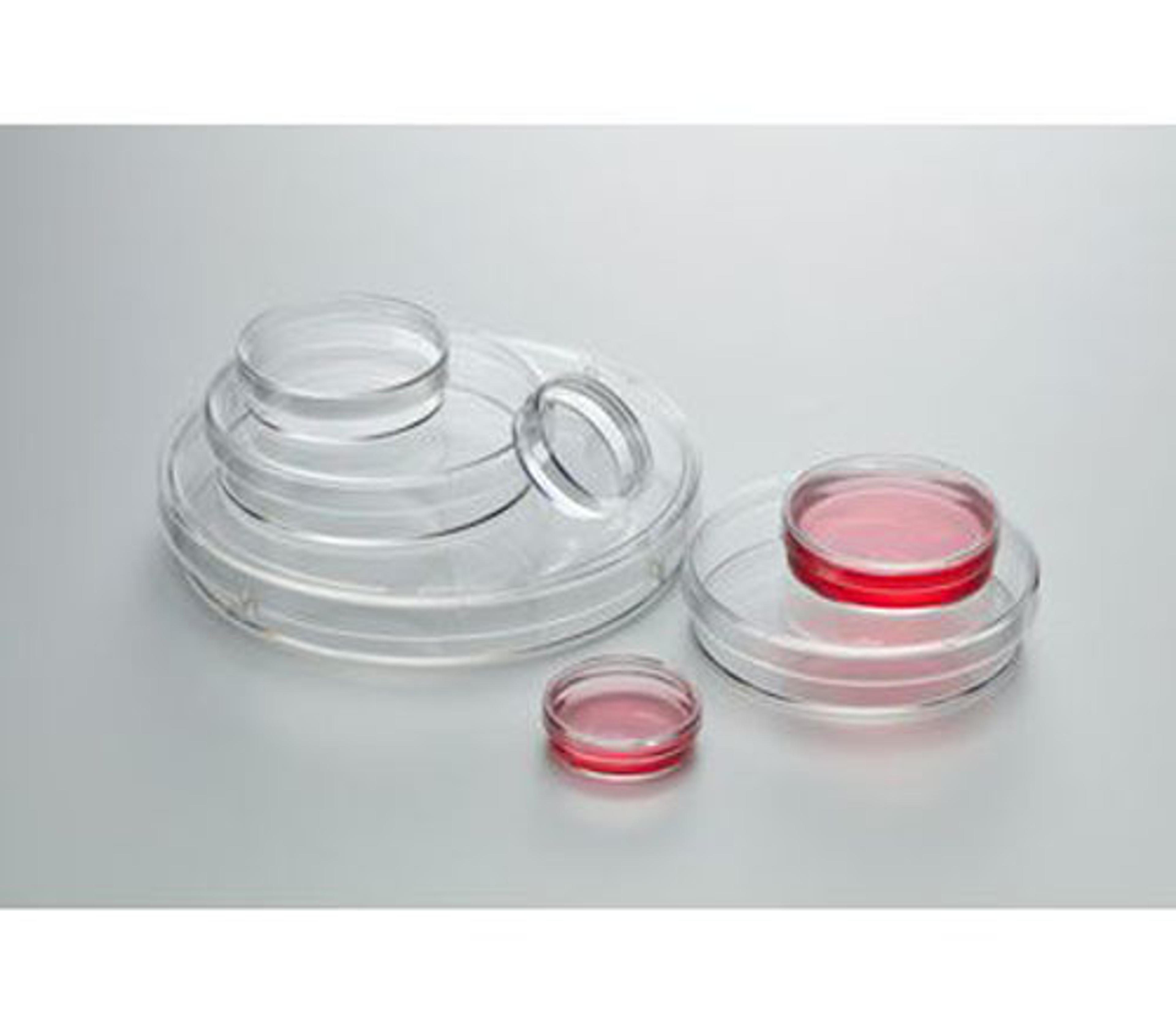A journey to more sustainable pipette tips
25 years after the launch of its much-loved TipOne® pipette tip system, hear how Starlab is working with its customers to reduce the impact of life science research on the environment
19 Jul 2023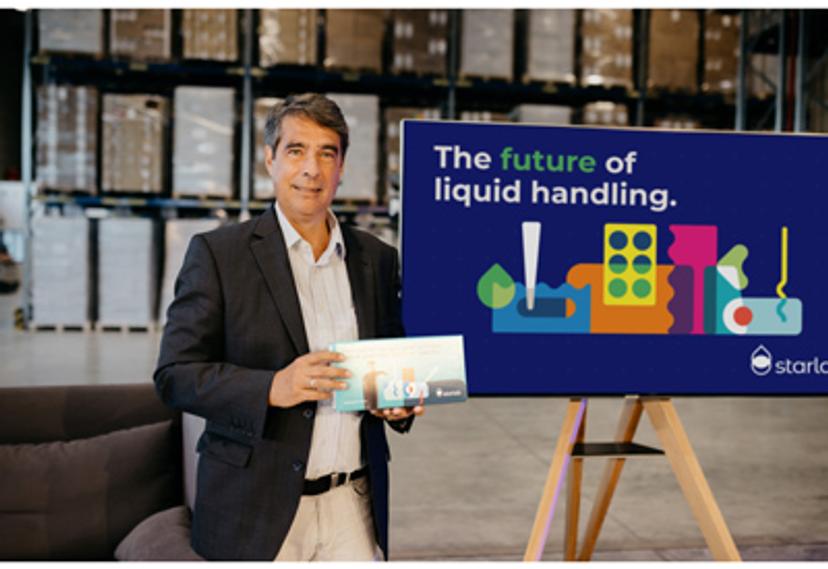
Chances are, if you visit a life science laboratory in Europe you will find researchers using disposable pipette tips manufactured by German-based labware manufacturer Starlab. Launched in 1998, its TipOne® range of universal-fit pipette tips revolutionized liquid handling in life science laboratories. Prior to this, manufacturers of pipettes produced their own ranges of tips that were designed to be compatible only with their own pipettes. Given that it was (and still is) common for individual laboratories to have a mixture of pipettes of different brands, pipette tip incompatibility was a headache for researchers and technicians that not only wasted time and money, but more importantly, compromised pipetting accuracy.
All that changed when Starlab had the vision to develop a single range of pipette tips that were fully compatible with the common brands of pipettes. For the first time, individual laboratories were able to purchase tips that would fit all of their pipettes, regardless of manufacturer. The system proved very popular with customers and today, it is widely used in laboratories across the world including in the UK, Germany, France, Italy, USA, India, China and South Africa. Starlab has followed the success of TipOne® with other innovative labware and lab equipment products including CytoOne® dishes, plates and flasks for cell culture, and the GuardOne® Workstation.
In this SelectScience® article we speak to Klaus Ambos, President and CEO at Starlab Group, about the impact Starlab has had on the scientific community over the past 25 years and the work the company is doing to become more sustainable.
Laying the foundation
“The widespread adoption of the TipOne® system is testament to its reliability,” says Ambos. “By providing a consistent and efficient solution, it has helped to streamline lab processes, save valuable time, and improve pipetting accuracy. It continues to meet the needs of laboratories today and contributes to the progress and success of countless scientific experiments and discoveries.”
More broadly, Ambos considers the 25th anniversary of Starlab’s pipette tip system to be a milestone of the company’s journey of driving improvements in the life sciences. “TipOne® was a great foundation to build Starlab as a brand of innovative solutions for research and analytics, and today we are seen as a reliable and innovative partner in helping labs to work more efficiently and sustainably,” he says.
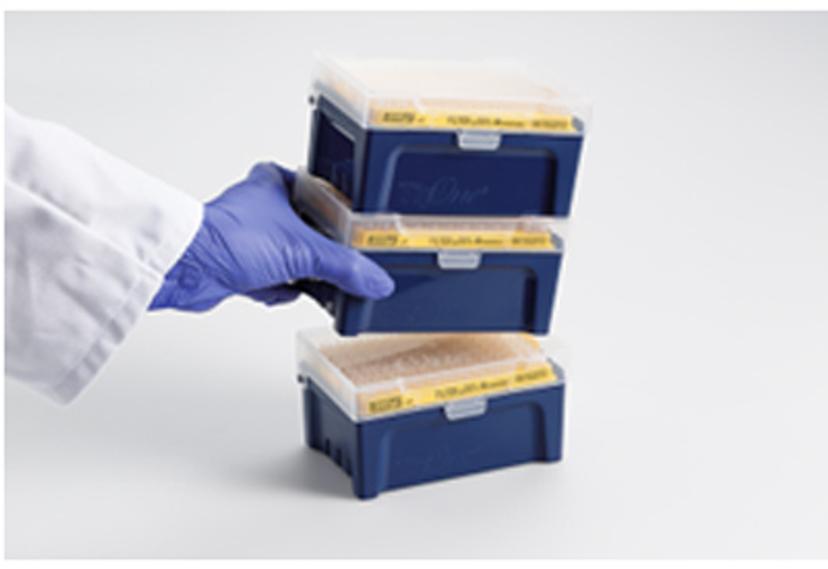
“Every product release that we have done since then brings us forward. It's not only different kinds of lab consumables like tubes, plates, and so on. It's also lab equipment, for example, the GuardOne Workstation and the Starlab Minicentrifuge. By providing these innovative solutions, we have enabled researchers to make advances in their respective fields and achieve scientific breakthroughs.”
Starlab prides itself on being a small company that works closely with its customers to develop cutting edge technologies. “We are mainly direct selling, so we have very close contact with our customers, which enables us to collaborate with the lab technicians and research facilities to understand their evolving needs and requirements,” says Ambos. “We are always very eager to listen and to learn.”
The company continues to expand its presence around the world, both in countries where it has its own subsidiaries, like Germany, the UK, France and Italy, but also in other countries with the help of smaller partners. Ambos is passionate about these partnerships. “We mean something to our smaller partners, he says. “They aren’t just adding us as another brand to their basket, so we have a very close relationship.”
Reduce, reuse and recycle
Starlab is passionate about sustainability and has embarked on a journey with its customers to develop products and processes that help reduce the impact of life science research on the environment. Reducing plastic waste is a priority. Ambos explains, “as we all know, plastic waste is everywhere. So, we need to make sure our industry has a good answer on the three Rs: reduce, reuse, and then recycle.”
“We do a lot of marketing to show our customers how they can reduce waste when using our products, but also for other tasks you may do in the lab, switching off lights and printers, and so on. We also try to make our customers aware that it’s everyone’s responsibility to reduce waste, not only the manufacturers of the lab products.”
Right from the outset, TipOne® was designed to reduce the use of single-use plastic in liquid handling. It was the first system on the market to provide an easy-to-use refill system using reusable tip racks, and virtually all the components in the system are made of recyclable materials.
A major milestone in its sustainability journey came in 2014 when Starlab launched a sterile refill system for TipOne® to reduce plastic use even further. “It is a cost effective and more environmentally friendly alternative to racked, sterile tips,” says Ambos. “It saves up to 63% plastic compared to the racked equivalent, and as well as reducing waste, it also provides a space saving of up to 20% so, with not having to ship so much plastic around the world, also reduces fuel consumption.”
And they didn’t stop there. Starlab also redesigned the whole TipOne® system to significantly reduce the polypropylene consumed in the packaging, as well as providing a plastic saving of up to 40% on their newest tips compared to the older equivalents. “In the first five years we saved around 515 tons of plastic. That doesn't sound much, but bearing in mind how thin and light the tips are, it is actually quite a lot.”
The company is also making progress on recycling. For more than a decade, the company has been running a free service for many of its customers where they collect the TipOne® packaging components and process the material into raw polypropylene. The company’s ultimate vision is to develop a closed loop system where the raw polypropylene is recycled into new Starlab products. Ambos explains, “we’ve embarked on this journey because the polypropylene we use for our products is high-purity grade, and it seems a waste to recycle it into bags, trays or other products that you can make with standard plastic.”
Refining the system for recycling TipOne® plastic packaging is a vital first step in closing the loop. “If you don't recycle the polypropylene in a proper way, you will not be able to use it to make new high purity grade products,” explains Ambos. “We are not there yet, but we are making big progress.”
By offering cutting edge technologies, expanding our product portfolio, and staying at the forefront of scientific advancement, we aim to empower the researchers' and facilities' breakthrough discoveries.
Klaus Ambos
President and CEO at Starlab Group
Ambos acknowledges that there is still a long way to go on Starlab’s sustainability mission. “I don’t say that we are ‘green’ because to truly be able to say that we would need to have developed solutions that totally replace oil-derived plastics, become carbon neutral and have found ways to move away from the global supply chain,” says Ambos. “But we have embarked on the journey to become more sustainable, and this will be even more important in the years to come.”
The future
Going forwards, Starlab is committed to continuing to build on the tremendous success of TipOne® in supporting life science research. “By offering cutting edge technologies, expanding our product portfolio, and staying at the forefront of scientific advancement, we aim to empower the researchers' and facilities' breakthrough discoveries,” says Ambos. “Together with our partners and customers, we also really want to push the boundaries a little bit and contribute positively to society as a whole.”
One way Ambos believes Starlab can contribute is by helping to inspire young people to pursue careers in the life sciences. The industry is currently facing a labor shortage with many organizations in Europe struggling to find suitable candidates to fill job vacancies. Starlab is actively engaging with young researchers, journalists and other companies to try to find new ways to make working in the life sciences more attractive.
Ambos says, “We really believe here at Starlab that we can do a great job in supporting and evolving research into the future.”

